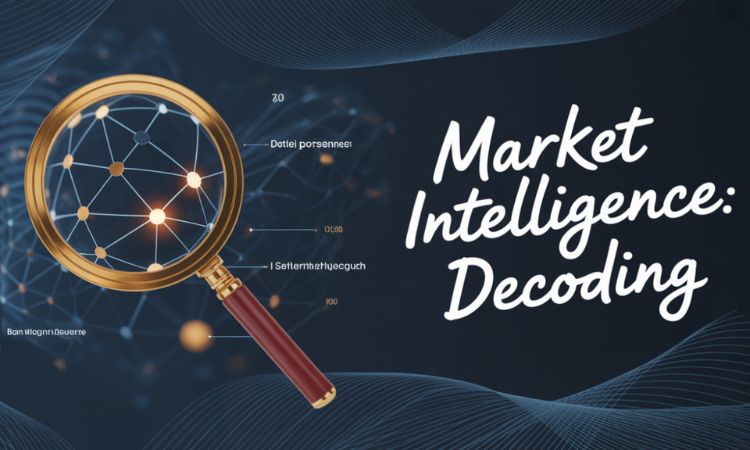Understanding Market Intelligence: Types and Strategic Value

Strong 8k brings an ultra-HD IPTV experience to your living room and your pocket.
In today’s fast-paced business landscape, having a clear view of external forces can make or break strategic decisions. Market intelligence refers to the systematic collection and analysis of data about a company’s external environment – including competitors, customers, products, and overall market trends. By translating raw data into actionable insights, market intelligence helps organizations anticipate changes and tailor their strategies. In this post, we will define market intelligence and then unpack the different categories that comprise the Types of Market Intelligence.
Competitive Intelligence
Competitive intelligence involves gathering data on rivals and industry players to inform your strategy. It focuses on competitors’ strengths, weaknesses, market position, and actions. For example, companies collect information on competitors’ product launches, marketing campaigns, pricing, financial performance, and partnerships. By systematically tracking these elements, businesses can anticipate competitor moves and adjust their own tactics to stay ahead.
Key facets of competitive intelligence include:
- Mergers & Acquisitions: Monitoring competitor deals and partnerships to gauge strategic priorities.
- Financial Performance: Tracking revenues, funding rounds, and profitability to benchmark competitor strength.
- Market Expansion: Observing where competitors enter new markets or regions, identifying growth areas and emerging threats.
- Major Wins: Noting competitors’ large client acquisitions or campaign successes to understand their market traction.
By leveraging competitive intelligence, organizations can create targeted strategies and even “battle cards” to outmaneuver rivals. In short, knowing your competitors’ moves lets you refine your positioning and capture a competitive edge.
Product Intelligence
Product intelligence focuses on insights about a company’s own products and its competitors’ products. This includes tracking product development cycles, feature performance, pricing, and market adoption. For example, product teams might monitor sales data, user feedback, and feature usage to determine which offerings succeed or need improvement. They also compare rival products’ features and pricing to spot gaps.
Key elements of product intelligence include:
- Product Performance: Analyzing sales figures, usage metrics, and market share to assess how products perform against goals.
- Feature Benchmarks: Comparing features and quality of your products versus competitors’ to identify improvement opportunities.
- Lifecycle Tracking: Monitoring product launch dates, updates, and retirement schedules to inform development roadmaps.
- Pricing & Positioning: Studying competitor pricing and promotions to optimize your own pricing strategy.
Product intelligence empowers companies to innovate effectively. By understanding which product features resonate with customers or where competitors are leading, businesses can prioritize R&D and adapt offerings to evolving market needs.
Customer Intelligence
Customer intelligence digs into data about current and potential customers to guide marketing and sales efforts. It collects demographics, firmographics, preferences, behaviors, and satisfaction levels. For instance, companies analyze customer surveys, purchase histories, and support feedback to understand what drives buying decisions. This intelligence helps tailor messaging, segment audiences, and improve customer experiences.
Important aspects of customer intelligence include:
- Customer Segmentation: Grouping customers by industry, size, or behavior to customize outreach.
- Behavioral Patterns: Studying purchase histories and product usage to identify high-value segments and cross-sell opportunities.
- Voice of Customer: Gathering feedback from surveys, reviews, and social listening to uncover needs and pain points.
- Loyalty & Retention: Tracking churn rates, repeat purchase frequency, and Net Promoter Score (NPS) to boost loyalty and reduce attrition.
Ultimately, customer intelligence helps businesses meet real customer needs. By adjusting product features, service levels, and marketing tactics to customer data, companies can foster loyalty and long-term growth.
Market Trends Intelligence
Market trends (or market understanding) intelligence takes a high-level view of the broader industry and environment. It encompasses overall market size, growth rates, emerging trends, and external factors like economic and regulatory changes. In practice, this means tracking industry reports, technology developments, and policy shifts that could impact the market.
Key elements of market trends intelligence include:
- Market Size & Growth: Researching total addressable market and segment growth to gauge opportunity.
- Industry Trends: Monitoring new technologies, consumer behaviors, and industry innovations to spot coming changes.
- Economic & Regulatory Signals: Watching for policy changes or macroeconomic indicators (like new laws or economic shifts) that could disrupt the market.
- Competitive Ecosystem: Analyzing partners, suppliers, and substitute products to understand broader market forces.
With this intelligence, businesses gain context for strategic planning. For example, spotting a rising industry trend early allows a company to pivot offerings in time, while noticing a regulatory change can prompt proactive compliance measures.
Strategic Value of Market Intelligence
Market intelligence isn’t just data – it’s a strategic asset. It shifts decision-making from guesswork to evidence-based strategy. As one source notes, MI provides “the factual foundation for strategic decision making,” informing everything from product development to marketing campaigns. In practice, companies that use MI effectively can make faster, more confident decisions.
The strategic benefits of market intelligence include:
- Competitive Advantage: Enables firms to stay ahead by understanding competitor strategies and industry shifts.
- Data-Driven Decisions: Fuels planning with current, relevant data instead of intuition.
- Risk Mitigation: Flags potential threats (new entrants, shifting consumer tastes, regulatory changes) so companies can plan contingencies.
- Opportunity Identification: Reveals unmet customer needs, emerging segments, or new markets for expansion.
- Innovation & Growth: Inspires new products and services by highlighting trends and technology breakthroughs.
By leveraging these benefits, companies can refine strategy and spur growth. For instance, research shows that deep market insights help businesses “stay ahead of competitors” and seize new opportunities earlier.
Conclusion
Market intelligence is essential for B2B teams, marketing organizations, and startups aiming to thrive in competitive markets. By understanding competitive, product, customer, and market trends intelligence, organizations gain the insights needed to make smarter decisions. A dedicated market intelligence platform can make this process seamless. Such platforms centralize data collection and analysis – one industry guide even defines a market intelligence platform as “a software solution designed to help businesses gather, analyze, and interpret data related to their overall market, competitors, customers, and industry trends”. In short, investing in a reliable market intelligence platform ensures these critical insights are always at your team’s fingertips, empowering confident decision-making and growth.
Note: IndiBlogHub features both user-submitted and editorial content. We do not verify third-party contributions. Read our Disclaimer and Privacy Policyfor details.


